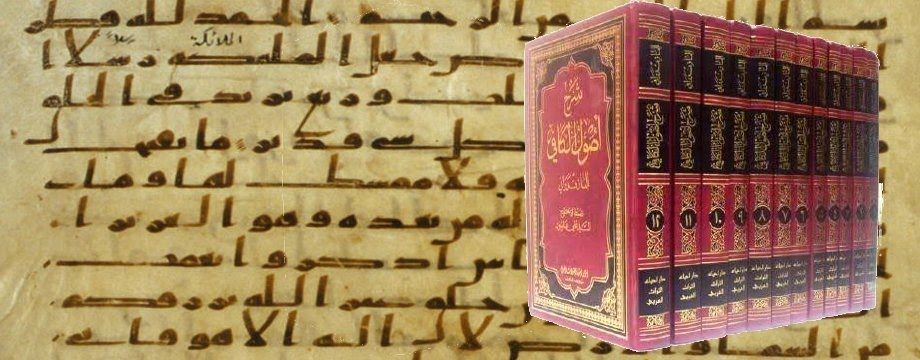Author Archives: editor
Ḥubb al-Waṭan min al-Īmān (حب الوطن من الايمان) – Love for one’s homeland is part of faith
This statement has been ascribed to the Noble Prophet (s) and many scholars have discussed the possible connection love for one’s homeland may have to faith. Not being able to fathom any connection between the two has led many a scholar to classify this tradition as apocryphal. While not found in any early Shi’i hadith … Continue reading
Review of: Was Imam ʿAli (a) a Misogynist? by Amina Inloes
Was Imam ʿAlī (a) a Misogynist? This is the title that Amina Inloes gave to her article about the phrases that have been “falsely attributed” to Imam ʿAlī in Nahj al-Balāghah that apparently undermine women. Aside from the rather crude and sensationalist title, the article aims to show that the statements in the Nahj where … Continue reading
Tumattiʿahu or Tumakkinahu?
In an interesting article on Duʿāʾ al-Faraj , Sayyid Jaʿfar al-Ḥaydarī argues that the phrase: «و تمتّعه فيها طويلا» …in Duʿāʾ al-Faraj is most likely a copyist error (taṣḥīf) and is actually supposed to be: «و تمكّنه فيها طويلا» He bases his arguments on the following evidence: 1) Shaykh al-Ṭāʾifah has mentioned the second version … Continue reading
The difference between sanad and isnad
Some ḥadīth scholars have said that isnād is a synonym of sanad. But others have rejected this synonymy outright and insist that these two terms are different. Isnād, according to them, is the ascription of a ḥadīth to the one who said it and is thus a means of attaining information about the chain of … Continue reading
Bihar al-Anwar
Biḥār al-Anwār al-Jāmiʿatu li Durari Akhbāri al-Aʾimmat al-Aṭhār (Oceans of light: A Compendium of the Exalted Traditions of the Pure Imāms) by ʿAllāmah Muḥammad al-Bāqir ibn Muḥammad al-Taqī al-Majlisī (d. 1111 A.H.) is an encyclopedic compilation of aḥādīth. This work, which occupied al-Majlisī for most of his scholarly life, grew from a more modest work … Continue reading
Which work did Shaykh al-Tusi write first – his Rijal or his Fihrist?
This is an interesting question and quite relevant to the understanding of the differences that are found in these two works of al-Shaykh. Many scholars think that the Fihrist was written before the Rijāl because: (a) Shaykh al- Ṭūsī refers to his Fihrist in his Rijāl (b)He also asks the reader to look for more … Continue reading
The General Attestation of Reliability (al-tawthiq al-‘am) of the Banu Faddal
In his Kitāb al-Ghaybah, Shaykh al-Ṭūsī quotes a narration from one of the special deputies of the 12th Imam, al-Ḥusayn ibn Rūḥ, in which he says that the 12th Imām was asked about the books of Ibn Abī al-Ghazāqir after he had been censured and a malediction had been pronounced against him. The Imām (‘a) … Continue reading
The “difficult” narrations of the Ahl al-Bayt (‘a)
Kulayni reports the following in al-Kafi (vol. 1 p. 401) قَالَ أَبُو جَعْفَرٍ ع قَالَ رَسُولُ اللَّهِ ص إِنَّ حَدِيثَ آلِ مُحَمَّدٍ صَعْبٌ مُسْتَصْعَبٌ لَا يُؤْمِنُ بِهِ إِلَّا مَلَكٌ مُقَرَّبٌ أَوْ نَبِيٌّ مُرْسَلٌ أَوْ عَبْدٌ امْتَحَنَ اللَّهُ قَلْبَهُ لِلْإِيمَانِ فَمَا وَرَدَ عَلَيْكُمْ مِنْ حَدِيثِ آلِ مُحَمَّدٍ ص فَلَانَتْ لَهُ قُلُوبُكُمْ وَ عَرَفْتُمُوهُ فَاقْبَلُوهُ وَ مَا … Continue reading
Reconstructing the person of Ibn Shu‘ba al-Harrani
The author of the famous fourth century hadith compilation Tuḥaf al-‘Uqūl, Abu Muḥammad al-Ḥasan ibn ‘Ali ibn al-Ḥusayn ibn Shu‘ba al-Ḥarrāni is an individual whose character remains elusive because nothing has been said about him in the early works of rijāl. Though more recent scholars have mentioned him with praise, the late Sayyid al-Khui (r) … Continue reading

